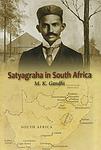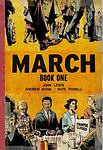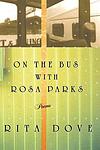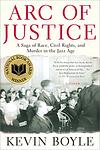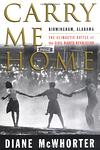The Greatest "Civil rights" Books of All Time
Click to learn how this list is calculated.
This list represents a comprehensive and trusted collection of the greatest books. Developed through a specialized algorithm, it brings together 284 'best of' book lists to form a definitive guide to the world's most acclaimed books. For those interested in how these books are chosen, additional details can be found on the rankings page.
Genres
The category of "Civil rights" books encompasses literature that explores the struggles and triumphs of marginalized groups in their fight for equal rights and social justice. These books often focus on historical events and figures, such as the Civil Rights Movement in the United States, and examine the impact of discrimination, racism, and prejudice on individuals and society. They also highlight the importance of activism, advocacy, and community organizing in promoting change and advancing civil rights. Overall, Civil rights books provide a powerful lens through which to understand and engage with issues of social justice and equity.
Countries
Date Range
Reading Statistics
Click the button below to see how many of these books you've read!
Download
If you're interested in downloading this list as a CSV file for use in a spreadsheet application, you can easily do so by clicking the button below. Please note that to ensure a manageable file size and faster download, the CSV will include details for only the first 500 books.
Download-
1. A Vindication of the Rights of Woman by Mary Wollstonecraft
This influential work from the late 18th century argues passionately for the education and societal recognition of women. The author asserts that women are not naturally inferior to men, but appear to be only because they lack education. She suggests that both men and women should be treated as rational beings and imagines a social order founded on reason. The book is considered one of the earliest works of feminist philosophy.
-
2. On Liberty by John Stuart Mill
This influential philosophical work explores the concept of personal freedom and societal limits, arguing that individuals should have the right to act as they want, provided they do not harm others. The book elaborates on the nature and limits of the power that can be legitimately exercised by society over the individual, and champions individuality and nonconformity. It also discusses freedom of speech, asserting that all opinions should be openly expressed to prevent any single viewpoint from becoming dogma.
-
3. Notes of a Native Son by James Baldwin
This book is a collection of essays that vividly capture the author's life in Harlem, his travels in Europe, and his views on everything from the sweet music of black church revivals to the biting prejudice of the 'then' contemporary world. It's an exploration of racial, sexual, and class distinctions in both Western societies and the American society. The author's reflections on his experiences as a black man in white America are profoundly insightful and continue to resonate today.
-
4. Rights of Man by Thomas Paine
This influential work is a passionate defense of the French Revolution and a detailed examination of the concept of human rights. The author argues against the idea of monarchy and hereditary succession, contending that government should be a reflection of the people's will and that it should promote equality and social welfare. The book also explores the role of government in society, the nature of civil liberties, and the importance of a written constitution.
-
5. A Theory of Justice by John Rawls
This book presents a seminal work in modern political philosophy, where the author proposes a model of justice that, despite being egalitarian, respects individual rights. The author's "veil of ignorance" thought experiment, which suggests designing society from an original position where no one knows their future place in society, has been particularly influential. The author argues that this would lead to a system where each individual is assured basic liberties and socio-economic inequalities are only allowed if they benefit the least advantaged members of society.
-
6. The Fire Next Time by James Baldwin
This book is a powerful exploration of race relations in America in the early 1960s. The author presents his experiences and observations in the form of two essays. The first is a letter to his 14-year-old nephew, discussing the role of race in American history. The second essay takes a broader look at the civil rights movement and the author's own experiences with religion and identity. Throughout, the author presents a passionate plea for the recognition of the humanity and dignity of all people, regardless of race.
-
7. Why We Can't Wait by Martin Luther King
This book is a powerful exploration of the civil rights struggle in the United States in the early 1960s, as seen through the eyes of one of its most prominent figures. It provides a historical context for the push for racial equality, including the role of nonviolent protest in achieving social change. The book also includes a detailed account of the 1963 Birmingham campaign, a pivotal moment in the civil rights movement, and presents a compelling argument for the urgency of addressing racial injustice.
-
8. Strange Fruit by Lillian Smith
"Strange Fruit" is a controversial novel set in the 1920s South, which explores the tragic consequences of a forbidden interracial relationship between a white man and a black woman. The narrative delves into the deeply ingrained racial prejudice, hypocrisy, and societal norms of the era, leading to a tragic end for the couple. The book is a powerful indictment of racism and a plea for understanding and change.
-
9. Satyagraha in South Africa by Gandhi
This book is a personal account of the author's experiences during the Indian struggle for civil rights in South Africa. It details the development and implementation of the concept of Satyagraha, or non-violent resistance, as a means of combating social injustice. The book provides a unique insight into the author's philosophies and strategies of peaceful protest, including his belief in the power of truth and the necessity of self-sacrifice in the fight against oppression.
-
10. The Help by Kathryn Stockett
Set in the early 1960s in Jackson, Mississippi, the story revolves around three main characters: two black maids and a young white woman. The maids, who have spent their lives taking care of white families and raising their children, agree to share their experiences with the young woman, who is an aspiring writer. The book offers a poignant and humorous look at the complex relationships between these women, while also exploring the racial tensions and social changes of the era.
-
11. The Strange Career of Jim Crow by C. Vann Woodward
This historical analysis examines the history and development of racial segregation laws, known as "Jim Crow", in the United States. It explores the origins of these laws in the post-Civil War era, their enforcement in the South, and the eventual resistance and dismantling of them during the Civil Rights Movement. The book also challenges the perception that segregation was a natural outcome of racial tensions, instead arguing that it was a system carefully constructed by white elites to maintain economic and political control.
-
12. The Subjection of Women by John Stuart Mill
"The Subjection of Women" is a seminal work that advocates for gender equality and women's rights. The book argues against the social and legal subordination of women to men, challenging the widely held belief that it's natural, inevitable, and beneficial. The author posits that women should be given the same rights as men, including voting rights and the opportunity to pursue any profession. He further argues that society would greatly benefit from the intellectual contributions of women if they were allowed to participate fully in all areas of public life.
-
13. Praying for Sheetrock by Melissa Fay Greene
"Praying for Sheetrock" is a non-fiction narrative that tells the story of racial tension and civil rights struggles in a small coastal town in Georgia during the 1970s. It focuses on the experiences of the African American community who, led by a charismatic shrimp boat worker, stand up against the corruption and racial discrimination perpetrated by the town's white sheriff and his deputies. The book provides an intimate portrayal of the town's residents, their hardships, and their fight for justice and equality.
-
14. Race Matters by Cornel West
This book is a profound exploration of the impact of race and racism on modern America. It examines the crisis of African-American leadership, the pitfalls of black conservatism, the myth of 'gangsta' culture, and the temptations of black nationalism. The author also delves into the complexities of affirmative action and the damaging effects of the nihilistic threat to the black community. The work offers a critical analysis of the current state of race relations in the United States and proposes solutions for creating a more equitable society.
-
15. March: Book One by John Lewis
"March: Book One" is a graphic novel that depicts the early life of a key figure in the American civil rights movement. Raised in rural Alabama, he grows up inspired by the activism surrounding the Montgomery Bus Boycott and the words of Martin Luther King Jr., which sets him on the path of nonviolent protest. The novel highlights his commitment to the fight for equal rights and his journey from a young boy on a farm to one of the key figures in the civil rights movement.
-
16. On the Bus with Rosa Parks by Rita Dove
This book is a collection of poems that delve into the African-American experience, particularly focusing on the civil rights era. The poems explore various perspectives, from the titular Rosa Parks to the less recognized individuals who also played roles in this pivotal period. The author uses these narratives to examine themes of oppression, resistance, and the struggle for equality, all the while showcasing her mastery of language and imagery.
-
17. Common Ground by J. Anthony Lukas
"Common Ground" is a non-fiction book that provides an in-depth examination of racial tensions in Boston, Massachusetts during the 1960s and 1970s, primarily focusing on the controversial issue of court-ordered busing to integrate public schools. The narrative follows three families - one African-American, one Irish-American, and one Yankee - to depict the effects of these tensions on the city's different communities. The book also explores the historical, political, and social context of these events, offering a comprehensive analysis of a critical period in American history.
-
18. Parting the Waters by Taylor Branch
"Parting the Waters" is a comprehensive and engaging chronicle of the civil rights movement in America from 1954 to 1963. It offers an in-depth look into the lives of key figures such as Martin Luther King Jr., and their struggle to end racial segregation and discrimination. The narrative is filled with detailed accounts of major events from the Montgomery Bus Boycott to the March on Washington, providing a vivid picture of this pivotal era in U.S. history.
-
19. Arc of Justice by Kevin Boyle
"Arc of Justice" is a riveting and complex story that unfolds in the racially tense backdrop of 1920s Detroit. The narrative follows an African American physician who moves his family into a predominantly white neighborhood, resulting in a chain of violent events. The doctor stands trial for murder, and the case garners national attention. The book delves into the doctor's fight for justice and the broader societal implications of racial tension, prejudice, and civil rights in America.
-
20. A Testament of Hope: The Essential Writings and Speeches of Martin Luther King, Jr. by Martin Luther King
This book is a comprehensive collection of the significant writings and speeches of a renowned civil rights leader. It includes his most influential and inspirational works, such as the "I Have a Dream" speech and the "Letter from Birmingham Jail", among many others. The book provides a deep insight into his thoughts, philosophies, and strategies for nonviolent protests, and his passionate advocacy for equality, justice, and dignity for all. It serves as a testament to his enduring hope for a more inclusive and equitable society.
-
21. Slavery by Another Name by Douglas A. Blackmon
The book explores the concept of "neoslavery," which entrapped thousands of African Americans in the South in a system of forced labor after the Civil War. This system was perpetuated by local laws, racial prejudice, and economic manipulation, where black men were arrested on false charges, then sold to companies as cheap labor. The book illuminates the forgotten history of this "age of neoslavery" that persisted into the 20th century and its profound impact on the racial disparities that exist today.
-
22. One Crazy Summer by Rita Williams-Garcia
"One Crazy Summer" is a heartwarming and poignant story set in the 1960s, following the journey of three sisters who travel to Oakland, California to spend the summer with their estranged mother. The girls find themselves immersed in the Black Panther movement and discover the harsh realities of racial inequality and social injustice. Through their experiences, they learn about love, resilience, and the importance of family.
-
23. Sons of Mississippi by Paul Hendrickson
"Sons of Mississippi" is a powerful exploration of the legacy of racism in the American South. The book uses a famous photograph of seven Mississippi sheriffs preparing to thwart James Meredith's integration of the University of Mississippi in 1962 as a starting point. The author then traces the lives and descendants of these men, providing a deep and nuanced look at the enduring effects of prejudice and discrimination, as well as the struggle for civil rights and racial equality in the United States.
-
24. Freedom by Orlando Patterson
"Freedom" is an in-depth exploration of the concept of freedom throughout human history, beginning with ancient civilizations and leading up to modern times. The author analyzes how the idea has evolved and been interpreted by different cultures and societies, arguing that freedom is a socio-cultural construct rather than an inherent human right. The book also explores the paradoxical relationship between freedom and slavery, suggesting that the concept of freedom often emerged from societies where slavery was prevalent.
-
25. Carry Me Home by Diane McWhorter
"Carry Me Home" is a deeply researched historical account of the civil rights movement in Birmingham, Alabama, during the 1960s. The book provides a comprehensive look at the racial tensions and violence that marked this period, focusing on key events such as the bombing of the Sixteenth Street Baptist Church. The author, who grew up in Birmingham, also interweaves personal experiences and family history into the narrative, offering a unique perspective on the complex social and political dynamics of the time.
Reading Statistics
Click the button below to see how many of these books you've read!
Download
If you're interested in downloading this list as a CSV file for use in a spreadsheet application, you can easily do so by clicking the button below. Please note that to ensure a manageable file size and faster download, the CSV will include details for only the first 500 books.
Download







